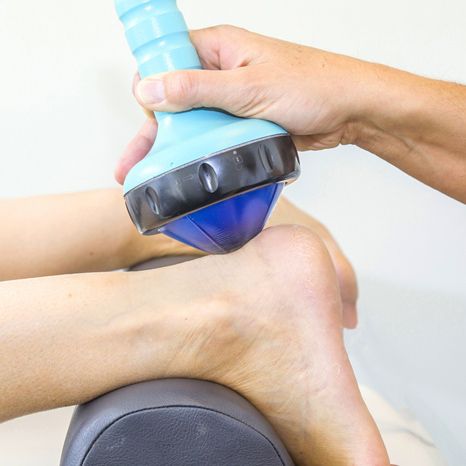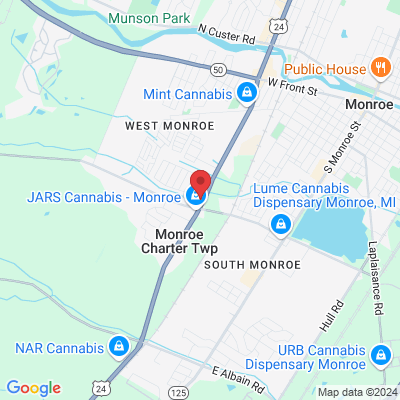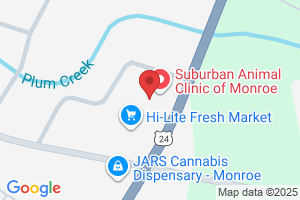What Radial Pressure Wave is
and How it Works
Some of the main goals for Radial Pressure Wave therapy are to reduce muscle pain and aches, increase blood flow, and activate connective tissues in the affected area. Evidence-based research indicates this new treatment has displayed promising results for various extremity issues.

Research indicates RPW results in fewer overall treatments when compared to ultrasound or electronic muscle stimulation treatments.
A doctor of chiropractic will apply a gel on the skin and place a handheld applicator on the injured area. The applicator delivers pressure waves through the skin to the injured tissue, increasing the blood flow to the site and accelerating the natural healing process.
What’s happening is that the strong energy pulses create tiny bubbles that penetrate tissues and stimulate the repair process within the damaged tissues. The pulses penetrate to a depth of around two inches without significant adverse effects. This depth is greater than other forms of therapy.
RPW: Is It For You?
RPW therapy is not a new, unproven methodology. Shockwave therapy has been commonly used for kidney stone treatment since the 1980s. One of the discoveries about its use was how it helped tissue healing and increased bone density.
These benefits are especially helpful for athletes at any level, who are more likely to develop chronic complaints from running, throwing, and lifting motions.
Research has shown that radial pressure wave therapy can effectively treat various tissue disorders in the extremities. This therapy can be a therapeutic tool for tendinopathies, “with success rates reported in the literature up to 91%” for conditions such as:
Rotator cuff tendinitis (shoulder)
Trocanteritis bursitis (a common type of chronic hip pain)
Achilles tendinitis (the Achilles tendon)
Plantar fasciitis (inflamed tissue across the bottom of the foot near the heel)
Patellar tendonitis (often called jumper’s knee or runner’s knee)
Lateral elbow epicondylitis (commonly known as tennis elbow).
As with most therapies, of course, there are conditions where RPW isn’t indicated. Examples include patients with bleeding conditions, pacemakers, use of medications that prolong blood clotting, and have acute injuries. Doctors of chiropractic also do not recommend it for children and women who are pregnant.
Radial pressure wave therapy is geared toward chronic musculoskeletal complaints that have been present for several weeks, months, or years. The general treatment plan for this type of procedure should be around three to six treatments within five to 10 days of each other and then assess results. RPW is not meant to be an ongoing, long-term therapy.
What’s it like to have RPW therapy? Patients sometimes say the first few minutes may be mildly uncomfortable. Then, the body will start releasing natural painkillers (endorphins) to help ease those sensations. The intensity and frequency of impulses will vary according to patient conditions.
Radial pressure wave therapy is one of the many conservative, non-pharmaceutical options a doctor of chiropractic may use. Other chiropractic options include manual techniques to correct disturbed biomechanical issues, posture and lifestyle recommendations, nutrition, and constructive exercise.
Doctors of chiropractic will make individualized care recommendations only after a comprehensive patient assessment and considering a patient’s overall health and well-being goals.
Monday
11:00 am - 2:00 pm
Tuesday
9:00 am - 12:30 pm
2:30 pm - 6:00 pm
Wednesday
Closed
Thursday
9:00 am - 12:30 pm
2:30 pm - 6:00 pm
Friday
11:00 AM - 2:00 PM
Saturday
9:00 am - 11:00 am
By Appointment Only


